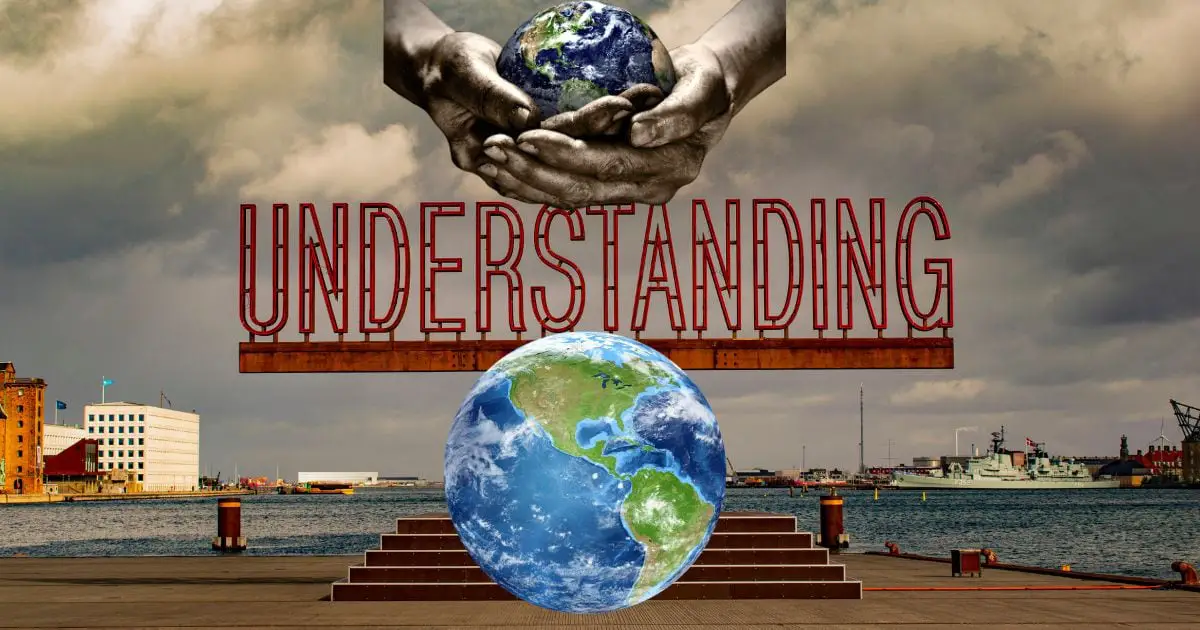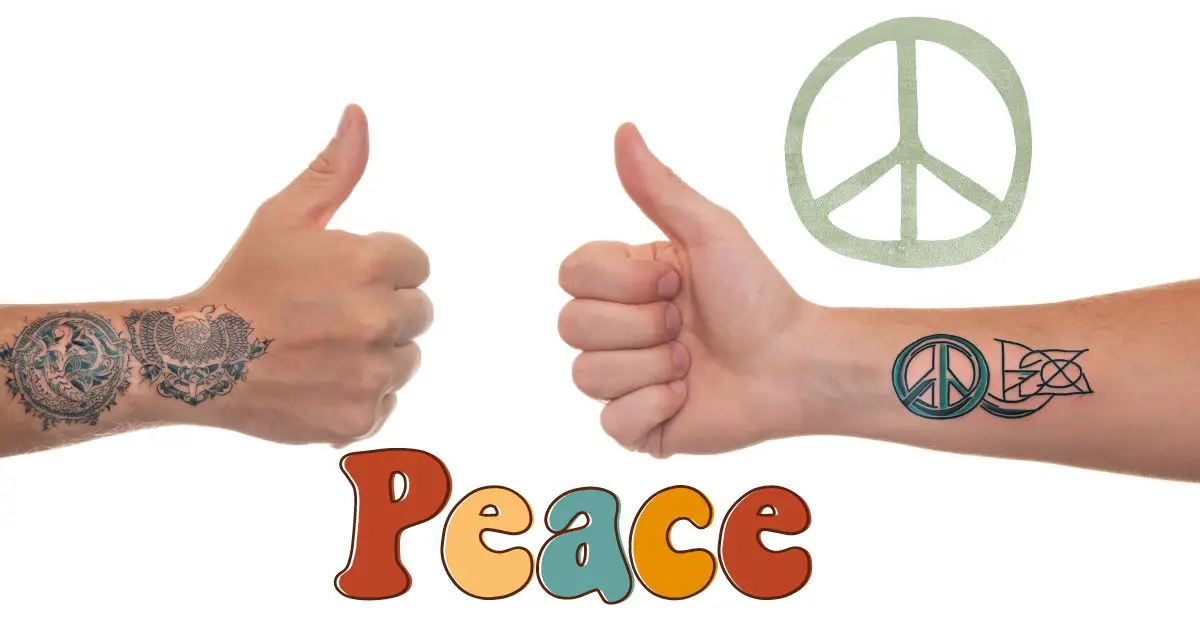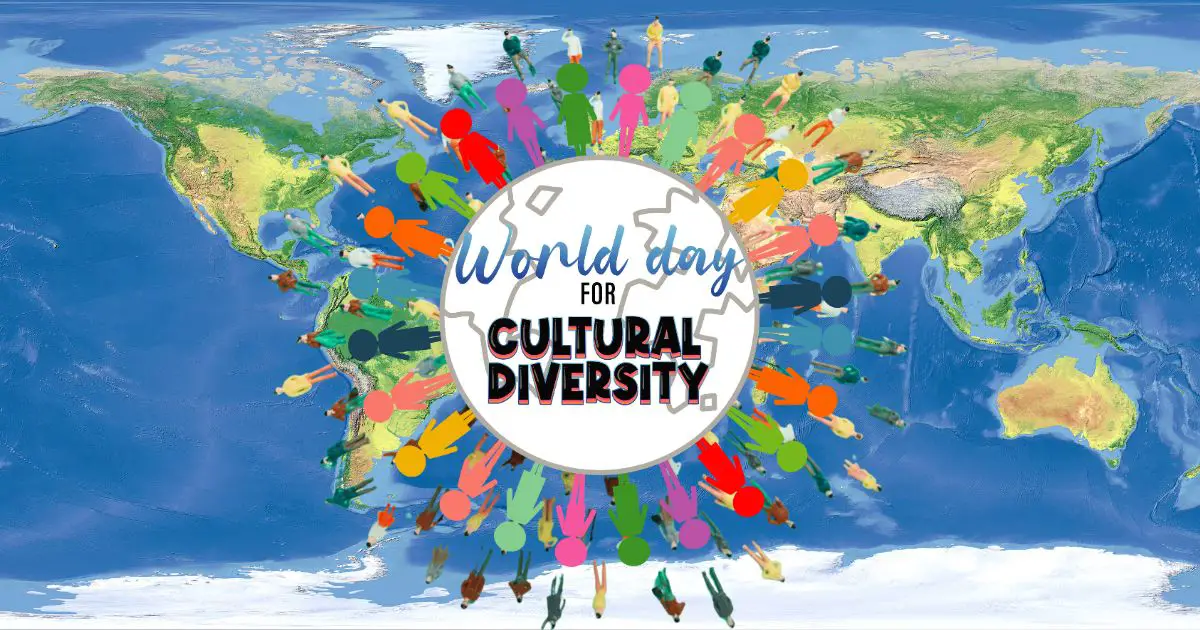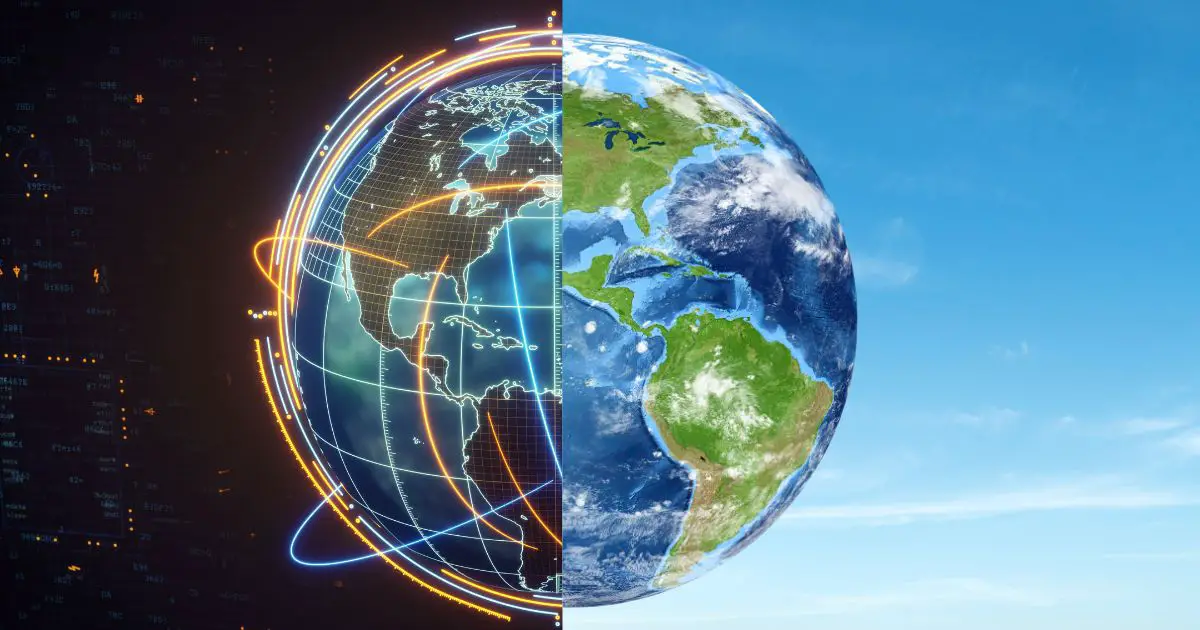What are some ways we can better understand the world around us? Many of us walk around on autopilot like a zombie blinded to our world and only view the world from our perspective. Only after an event in our lives than we start to realize that we need to better understand the world to improve ourselves, so what can we do to better understand this world?
The grand tapestry of existence unfolds a multifaceted and continuous journey. You can understand the quest to comprehend our world. This pursuit requires a nuanced approach, transcending surface-level understanding. Not merely an accumulation of knowledge, this comprehensive exploration fosters personal growth and empathy. Moreover, it creates a deeper connection to the diverse facets inherent in our shared human experience.
To better understand the world around us begins with personal initiative. Start by listening, observing more, and giving others the space to express themselves while you absorb their perspectives. Avoid quick judgments and aim to see the world through their perspective. Embracing open-mindedness and empathy can foster a richer understanding of the world around us.

The Pinnacle of Human Curiosity
Curiosity, an innate drive that propels us to question, explore, and seek meaning in the world, nestles at the heart of understanding. It is our compass from childhood’s corners teeming with new adventures into adulthood. The human psyche harbors deep-rooted connections between curiosity and nature, and understanding these intricacies sets the stage for relentless exploration throughout life.
The Dynamics of Curiosity Across Lifespan
Research reveals across the lifespan, curiosity’s dynamics evolve. Children demonstrate unbridled curiosity. On the other hand, adults might experience fluctuating levels. This is a phenomenon influenced by motivation, knowledge, and environmental stimuli. By delving into these dynamics, we gain crucial insights into our understanding of the world at various life stages is shaped by curiosity.
1. The Art of Active Listening

Beyond Hearing Words
Active listening is a skill often disregarded in our frenetic world. It serves as a portal to empathy and comprehension. This multifaceted process entails more than mere auditory reception. It requires immersion within the speaker’s viewpoint, capturing subtle nuances, and discerning unexpressed emotions.
Research accentuates the transformative potency of active listening. It amplifies interconnections profoundly while broadening our grasp on manifold experiences, all through intentional engagement with others’ narratives.
The Intersection of Active Listening and Emotional Intelligence
A profound connection uncovers itself when we delve into the intersection of active listening and emotional intelligence. Self-awareness and empathy are the components of emotional intelligence. They intertwine with active listening to foster a holistic understanding. Through this exploration, insights emerge on how enhanced emotional intelligence can elevate our capacity for understanding others’ emotions and perspectives.
2. Nurturing Empathy for Personal Growth

Stepping into Another Person’s Shoes
Empathy is a bridge. It connects us to the diverse landscapes of human experience. To truly gain an understanding of the world, we must actively step into others’ shoes, acknowledging their joys, pains, and aspirations. Psychological research underlines its positive effect on interpersonal relationships and underscores it as a pivotal factor in deepening our comprehension of societal challenges.
The Neurobiology of Empathy
Exploring the neurobiological underpinnings of empathy deepens our understanding. We discover that mirror neurons, neural circuits enabling us to simulate and comprehend others’ emotions, are its roots. By unraveling this complex neurobiology associated with empathy, we illuminate not just our capacity for connection but also gain insight into how intricately tied are the emotions of those around us.
3. The Role of Lifelong Learning For A Fountain of Wisdom
You must embrace the role of a lifelong learner to gain a better understanding of the world. This commitment to continuous learning is not simply a passive pursuit, but rather an active engagement with knowledge’s ever-evolving landscape. Formal education, self-directed learning, and exposure to diverse perspectives are all avenues through which we become fountains of wisdom that enrich our understanding in perpetuity. They constitute what is known as ‘lifelong learning’.
The Neuroscience of Lifelong Learning
Neuroscientific studies offer better insights into the brain’s capacity for lifelong learning. Through the concept of neuroplasticity, they highlight an emphasis on ongoing intellectual stimulation.
Neuroplasticity denotes a dynamic process. It is not static but rather reflects our brains’ ability to reorganize and adapt throughout life. When we examine the neuroscience of lifelong learning, it becomes clear that our brains maintain malleability. They remain capable, even in adulthood, of absorbing new information and refining understanding.
4. The Intersection of Nature and Nurture to Shaping Worldviews
Acknowledging the intricate interplay between nature and nurture is crucial for understanding the world. Our worldviews form under the influence of genetic predispositions and environmental factors, which we must take into account.
Research in behavioral genetics as well as environmental psychology investigates how these influences contribute to our society’s diverse perspectives. It’s a key characteristic defining our global society at large.
Epigenetics and the Legacy of Environmental Influence
Epigenetics, as a field, reveals another layer in the nature versus nurture debate. It explains how environmental factors shape our genetic expression through epigenetic mechanisms. These modifications imprint enduring marks on our biology, a remarkable insight into the profound influence of context and experience. By delving into epigenetics, we enhance our comprehension of the ways environmental encounters etch themselves onto both individual and collective narratives.
5. Cultivating a Global Perspective – Beyond Borders
In our interconnected world, it is imperative to cultivate a global perspective. Engagement with diverse cultures, be it through travel, cross-cultural interactions, or virtual connections, significantly broadens our horizons. Emphasizing the role of cultural exposure in shaping cognitive processes and expanding societal norm understanding. This is what research in cultural psychology does.
Technological Advances and Global Connectivity
In the digital age, our global perspective has been revolutionized by technological advancements such as virtual connectivity, social media, and online platforms that facilitate cross-cultural interactions and nurture interconnectedness. When we scrutinize technology’s impact on global connectivity, it becomes evident that digital technology is a significant contributor to shaping a more globalized worldview.
6. The Ethical Dimensions of Understanding

The Moral Imperative
The pursuit of understanding is far from being a value-neutral endeavor, it inherently carries ethical dimensions. These facets, like an invisible hand, profoundly shape our moral compass. When confronted with dilemmas or conflicting values, we fight not only for knowledge but also grapple with the inherent ethics, ultimately making decisions that impact others.
The exploration of this complex landscape involves examining how empathy intertwines with cultural influences and moral reasoning. Together they form guideposts directing our perception of what’s right versus wrong in a given context.
Applied Ethics in Everyday Choices
Exploring the manifestation of ethical principles in practical decision-making scenarios offers a pragmatic perspective on aligning our actions with moral beliefs. This is where understanding applied ethics in everyday choices becomes crucial.
Beyond theoretical discussions, this exploration into how to align action and belief unveils complexities that add depth to our examination of understanding’s ethical dimensions. It deepens our comprehension by grounding it within a real-life context, an essential aspect of comprehensive knowledge development.
7. The Evolution of Cultural Understanding in a Dynamics Globalized Era

Cultural Competence in a Globalized World
Cultural understanding necessitates our existence in this globalized era. It is not merely a luxury. To develop cultural competence, you must go beyond simple recognition of cultural diversity.
Understanding the historical, socio-economic, and political contexts that mold various societies is also crucial. The study of cross-cultural psychology offers us a framework, an essential one, for understanding the dynamics inherent to cultural interaction within our vastly interconnected world.
Challenges and Opportunities in Cross-Cultural Interaction
Navigating a culturally diverse world highlights the paramount importance of understanding challenges and opportunities in cross-cultural interaction. When we examine case studies and real-world examples, it is evident that cultural intelligence plays an essential role in unveiling practical insights into fostering effective communication. Not only this but also collaboration across boundaries defined by culture.
8. The Wisdom of Nature and A Source of Insight
In its pristine beauty and within its intricate ecological systems, nature acts as a profound teacher. It is an educator of unparalleled wisdom. Environmental psychology research underscores this truth. Nature’s positive impacts on mental well-being, cognitive function, and even overall human health are emphasized.
Hence, comprehending the inherent wisdom embedded in natural phenomena becomes not merely a task but rather an illuminating journey toward navigating the challenges modernity presents us with.
Sustainable Practices and Ecological Harmony
Nature, beyond being a teacher, provides us with the blueprint for sustainable living. When we examine ecological harmony principles and sustainable practices. It offers practical lessons that integrate environmental stewardship into our understanding of responsible living. Our actions’ interconnectedness with the planet’s well-being becomes emphasized through this exploration.
9. The Transformative Power of Reflection
Viewed as a personal indulgence, reflection remains an impactful tool for understanding. We engage in introspection through various methods such as journaling, meditation, and contemplative practices to process experiences, refine our comprehension of them, and chart the course toward personal growth. The research underscores the positive influence of these reflective practices on enhancing self-awareness and emotional intelligence.
Mindful Reflection for Holistic Understanding
Not merely introspection, but also intentional observation of our thoughts and emotions in the present moment: that is what mindful reflection entails. By integrating mindfulness into our reflective practices–we can engage with heightened awareness—which enhances our ability to interact dynamically with the world around us. Exploring the art of mindful reflection – we augment our continual journey toward understanding with a new dimension: mindfulness.
10. Technological Lens Shaping Our Worldview in the Digital Age
The digital revolution, in the 21st century, has metamorphosed our methods of accessing, consuming, and interpreting information. The exponential growth of smartphones, and social media platforms, alongside advanced communication technologies, has beckoned a new era where global accessibility is but a touch away. This technological lens does not solely expedite knowledge distribution. It also sculpts our worldview with unparalleled influence.
Information Overload and Selective Exposure
An abundance of information characterizes the digital age, which presents us with the challenge of grappling with this overload. Navigating through a deluge of data requires not just discernment but also critical thinking. Yet, we must acknowledge that on one side, individuals tend to gravitate towards information aligning their existing beliefs due to selective exposure in this digital realm. Cultivating an informed and well-rounded perspective depends on our ability to understand the dynamics of information consumption in the digital realm.

Virtual Reality and Immersive Experiences
Virtual reality, a technological innovation, provides immersive experiences that go beyond conventional limits. Individuals can be transported to diverse environments with the potential of virtual reality, thereby gaining new perspectives on the world and experiencing it in unique ways. By exploring how virtual reality intersects with understanding, we reveal its capacity to bridge gaps and cultivate empathy through a simulated yet profound journey into others’ lives.
Artificial Intelligence and Algorithmic Influence
Artificial Intelligence algorithms continue to escalate, significantly influencing our digital experience. These systems are curators of content, personalization agents that shape recommendations, and even exert a measure of sway over the information we come across.
When we scrutinize the ethical ramifications tied to this artificial intelligence-driven, algorithmic power, it unveils a fragile equilibrium between technological progressions on one hand and an unprejudiced diversity in perspectives requisite for our pursuit of comprehension on another.
11. The Digital Divide and Global Inequality

Access Disparities
Technology, with its global connectivity potential, also reveals access disparities and the digital divide. This divide mirrors variations in three key areas, internet access, literacy in technology, and resource availability, all significant contributors to worldwide inequality.
The implications of this digital divide expand our outlook on challenges that marginalized communities encounter when accessing information and engaging in the digital dialogue: a deeper understanding indeed of their unique struggles.
Social Media and Echo Chambers
Social media, a potent instrument for communication and connectivity, may unintentionally foster echo chambers. Frequently, users bolster their current beliefs by immersing themselves in the company of similarly-minded individuals.
This practice restricts exposure to diverse viewpoints. Through an analysis that scrutinizes social media’s role in molding echo chambers, we can develop a nuanced comprehension of how our digital interactions shape our overarching worldview.
Digital Literacy as a Necessity
Cultivating digital literacy becomes imperative in the digital age. Engaging in respectful digital discourse, discerning credible sources, and navigating online spaces critically are skills that empower individuals to harness technology’s positive aspects while mitigating its potential pitfalls. Our exploration of the concept of digital literacy enriches our understanding, guiding us toward responsible navigation through the complexities of the modern landscape.
Wrap-Up
Concluding our in-depth exploration, we stand amidst a continuously unfolding tapestry of understanding the world. Our comprehensive journey, spanning curiosity’s realm to active listening, empathy and lifelong learning, nature vs nurture debates, global perspectives, and ethical considerations, all encapsulate cultural understanding with reflective practices. This is an embodiment of holistic comprehension.
May our exploration of understanding be a source of inspiration, transformation, and a catalyst for positive change in both our personal lives and the broader world we inhabit. In every moment, let the tapestry of understanding continue to unfold, revealing the beauty of a world intricately woven with diverse threads of human experience.
By AL Tran





